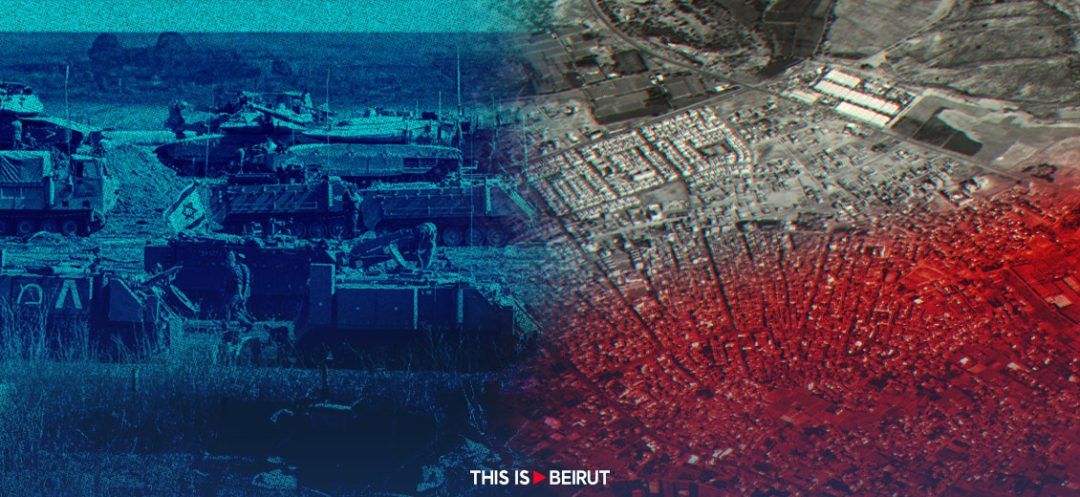- Home
- War in the Middle East
- War and Diplomacy: Who Will Win in Rafah?

In Saudi Arabia, Western diplomacy is discussing, on the sidelines of the World Economic Forum (WEF), a ceasefire in Gaza, while in Israel, the debate continues regarding an invasion of Rafah, in the southern part of the Palestinian enclave. Time is of the essence, and it is still uncertain which option will prevail: a ground invasion of Rafah, where more than a million displaced Palestinians from the northern territories have sought refuge, or a diplomatic victory?
Israel, which has been insisting for months on this operation that is aimed, according to its Prime Minister Benjamin Netanyahu, at neutralizing Hamas, is under increased international pressure not to proceed. But it is not yielding. Diplomatic efforts, however, are intensifying to avert the military option.
According to British Foreign Secretary David Cameron, who is currently in Riyadh, the latest ceasefire proposal for Gaza, presented to Hamas, calls for a cessation of hostilities for 40 days. It is "a very generous offer of a 40-day ceasefire, the release of thousands of Palestinian prisoners in exchange for the release of (Israeli) hostages," Cameron said during a meeting at the WEF.
This formula was developed by Egypt and amended by Israel. According to various sources cited by pan-Arab and Israeli media, Hamas is expected to give its response within the next 24 hours. To that end, a delegation from the group was expected on Monday in Cairo, which has a vested interest in the negotiations' success, given that Rafah is located on its border with Gaza, kept closed since October 7, 2023.
Two weeks ago, Hamas had called for a permanent ceasefire in the Strip, which Tel Aviv had rejected.
US Secretary of State Antony Blinken, who is also in Riyadh for the WEF, expressed hope that Hamas would accept Egypt’s proposal, while his Egyptian counterpart, Sameh Shoukry, stressed that his country was optimistic about a breakthrough but was awaiting responses from Israel and Hamas.
However, the Israeli government remains divided on the issue: right-wing Finance Minister Bezalel Smotrich opposed any agreement that would hinder a military operation in Rafah. He described the agreement proposed by Egypt as "humiliating," while the previous day, his colleague from the Foreign Ministry, Benny Gantz, had stated that the government would lose its legitimacy if ministers prevented a plan allowing for the release of the hostages.
Gantz had called for "a responsible plan for the return of the hostages, supported by the entire defense establishment, which does not entail an end to the war."
Pressures on Israel
The diplomatic dynamics for a settlement are accompanied by strong pressures on Israel, notably from its main funder, the United States, while Qatar threatened to withdraw from the negotiations.
This pressure has intensified since Sunday. Some Israeli officials believe that the International Criminal Court is preparing to issue arrest warrants against senior officials of the country, including Benjamin Netanyahu, for charges related to the conflict in Gaza. An attack on Rafah is likely to accelerate the process, something Tel Aviv, also facing internal pressures, wishes to avoid.
Sunday, just after Blinken's departure for Saudi Arabia, US President Joe Biden called Netanyahu to discuss ceasefire talks and reaffirm his opposition to an invasion of Rafah. This phone call comes three weeks after Biden warned Netanyahu that US military support was contingent on reducing civilian casualties and increasing humanitarian aid to Gaza.
In addition to international pressures, there are also local pressures exerted by Israelis on their government, whether from the parents of hostages still held by Hamas or from residents of northern regions who have had to flee due to ongoing exchanges of fire between Israel and Hezbollah.
"An agreement, now!" chanted thousands of people who gathered Saturday night in Tel Aviv to demand the release of the hostages. They also called for Netanyahu’s government to resign.
The same call for an agreement with Hamas was made Monday by the families of two hostages.
This movement follows last week's release by Hamas of two videos showing three hostages.
The offensive
On the ground, Tel Aviv continues preparations for a military operation. The Israeli army has begun recalling reservist soldiers and assembling dozens of tanks and armored vehicles near the city. Some media outlets reported that Israeli raids on Rafah had been launched since Saturday, with dozens of people killed.
Still according to media sources, the Israeli army has completed preparations for the evacuation of civilians from Rafah, after establishing a "tent city" in Khan Younis, further north.
Another indication of a pending attack is the announcement by the Israeli army on Sunday that its chief of staff, Herzi Halevi, had approved plans for further operations in the southern Gaza Strip.
For Israel, however, the calculations remain complicated: if the army does not enter Rafah, it could be interpreted as a defeat, especially since the general impression is that Hamas leadership is still operational. But if Israel carries out a ground invasion, this could lead Hamas to suspend any agreement and increase pressure on Netanyahu's government, both domestically and internationally.
Read more




Comments